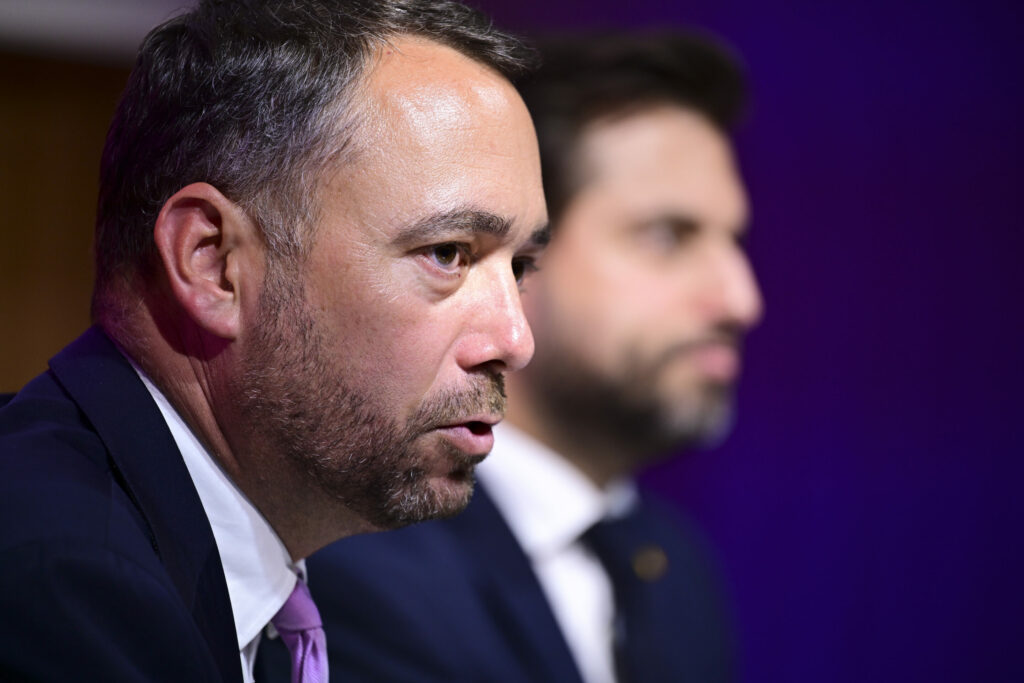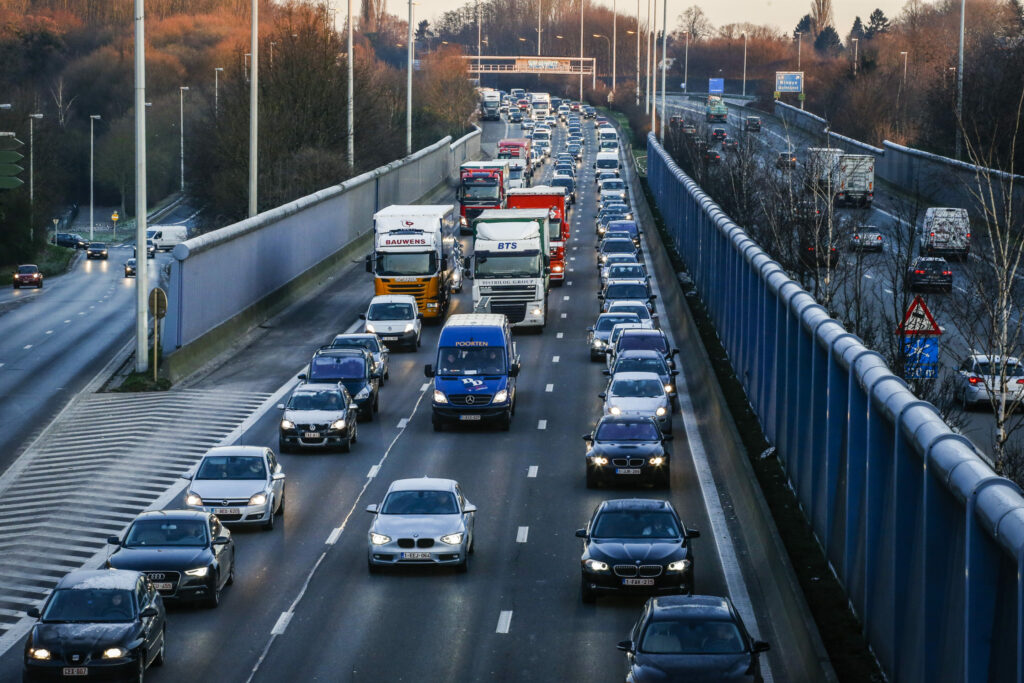The new Walloon Government wants to introduce a road toll system ('road vignette') to make both domestic and international road users pay for the Walloon road network. There were plans to introduce a similar toll about 20 years ago, but they fell through.
To make road users pay for the use of Walloon roads, liberal Mouvement Réformateur (MR) and centrist Les Engagés want to introduce a 'road vignette' by the end of the legislature. This would have to be paid by "both Belgian and international users," the new Walloon coalition agreement states.
While concrete plans have not yet been detailed, Les Engagés' party programme explicitly refers to the Swiss road vignette. A vignette (a sticker or a digital variant) costs 40 Swiss francs, or the equivalent of €41 for 13 months. There is no daily, weekly or monthly variant in Switzerland.
According to MR and Les Engagés, the vignette would be "in accordance with European rules" and would mean "no increase in the tax burden." MR leader Georges-Louis Bouchez said that the intervention would be "budget neutral for the Walloons," as they will likely be compensated through lowered traffic taxes.
A second chance?
By introducing this vignette, the Walloon Government is reigniting a discussion that dates back more than 20 years. The introduction of a road vignette was already included in the coalition agreement of the Flemish Government in 2004: "We aim to introduce the road vignette to replace the road tax, so that from now on everyone, including internationals, pays for the use of our road infrastructure."
Subsequently, the Brussels and Walloon Governments also expressed their support for such a vignette. After much deliberation, the three regional governments also agreed on the cost of the vignette and on the distribution of the income. After some delays, the vignette was supposed to be introduced in 2009.
However, after legal objections that the road vignette might not pass the test of European regulations and after strong criticism from the Netherlands, the Flemish Minister-President Yves Leterme (CD&V) at the time buried the idea of a road vignette in March 2007 during a visit to the Netherlands.

Les Engagés leader Maxime Prévot and MR leader Georges-Louis Bouchez. Credit: Belga / Laurie Dieffembacq
Now, MR and Les Engagés are confident that their plans will be in accordance with European rules. Bouchez said that the intention is to conclude a cooperation agreement with the other region, in particular the Brussels-Capital Region, on the introduction of the vignette. He added that he had already been in contact with the Brussels leaders of MR (David Leisterh) and Les Engagés (Christophe De Beukelaer).
"We are going to work with a cooperation agreement so the people of Brussels will not be penalised by such a vignette," Bouchez said. "Our goal is not for other Belgians to pay, but for the millions of Europeans who drive through Wallonia. We are asking them to pay a reasonable contribution for the use of our road network."
At Bel RTL, Les Engagés leader Maxime Prévot made it clear that "the south of the country does not always have to dance when the north of the country whistles." He added that the road vignette would be introduced throughout the country "in an ideal scenario," but otherwise Wallonia will introduce it separately.
On Friday, mobility organisation Touring stated it was unhappy with the proposal for a Walloon road vignette. "We are not in favour of a separate system per region. That's a bit absurd," Touring spokesperson Danny Smagghe told Belga News Agency. "We need to move towards a uniform system for the entire country. We are more in favour of a 'smart kilometre tax' based on when, where and how far motorists drive."

